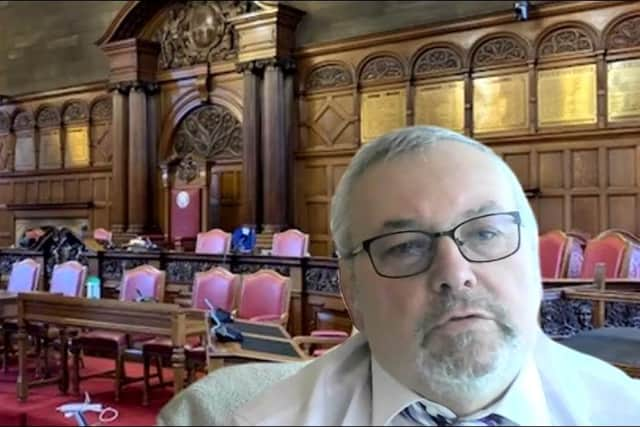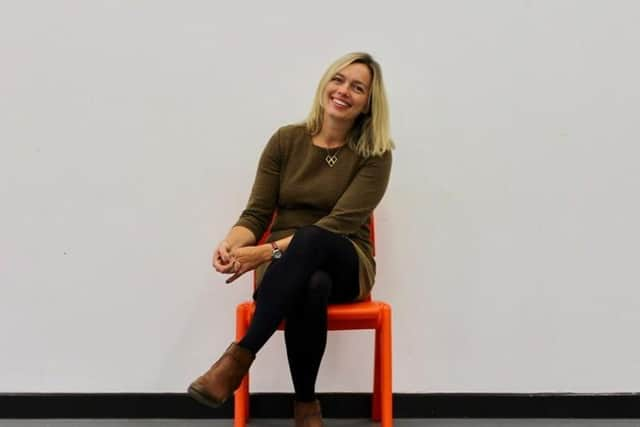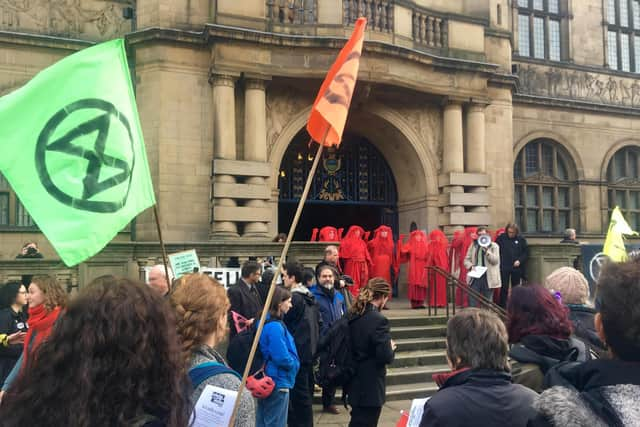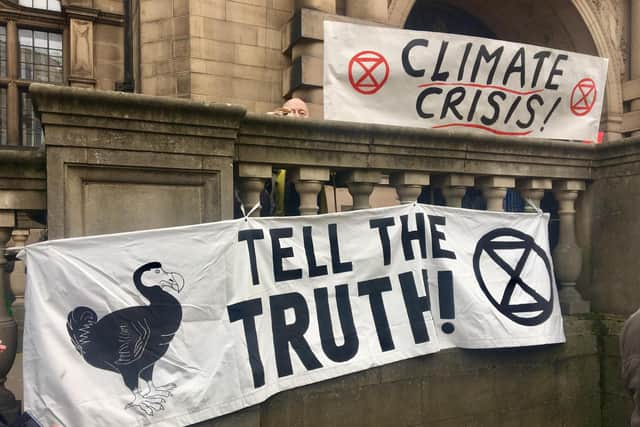“Everybody needs to play their part for climate change”: Sheffield Council holds first climate summit
and live on Freeview channel 276
Council leaders, experts and members of the public joined together for the fully booked event was the first in a series of conversations on tackling the climate crisis.
It came with the release of the Pathways to Zero report, produced by Arup and Ricardo over the past year, that acts as a route-map towards a zero carbon Sheffield and shows the challenges of reaching even an 85 percent reduction over the next nine years.
Advertisement
Hide AdAdvertisement
Hide AdOpening the event, councillor Terry Fox, deputy leader of the council, said: “We are here to listen to local people with their local ideas solutions to what is a major challenge for the city.


“The climate emergency is a central issue for this council. It is an issue that really matters to us and we recognise all the challenges as well as opportunities it presents to the city and our communities.”
Kate Josephs chief executive of the council, said the authority needed to find investment for projects but also ensure action was not “just a budget line or a service” but something that is woven throughout decision making and in everything it does “like a stick of rock”.
Part of these plans include training as many staff and elected members as possible as soon as possible in carbon literacy.
Advertisement
Hide AdAdvertisement
Hide AdMs Josephs added: “The climate emergency, and it is an emergency, is important to me as a human being, a person, friend, mum and child, but I also know in my role as a chief executive of the council I have a huge responsibility.


“It feels like we are at a fork in the road and we have an opportunity to do things differently now and I think it’s important that we do that.
“Coronavirus has changed everything and we can learn from how we have worked together to tackle coronavirus to tackle the climate emergency as well.
“All of us who have pulled together, rolled up our sleeves, thought creatively and put aside differences, de-prioritised other agendas to take the action we needed to take to keep people safe, we need to learn from that and think about how we can apply those lessons to how we tackle climate change as a city, a region and a country.”
Advertisement
Hide AdAdvertisement
Hide AdAs well as Coun Fox and Ms Josephs, attendees heard from Coun Mark Jones, cabinet member for environment, Andy Sheppard, lead sustainability expert at Arup, and Emily Bridge, chief executive at Community Energy England.


Mr Sheppard said there was a 42 percent reduction in carbon energy use across Sheffield since 2005 – predominantly in industry and commercial sectors, with transport slower to change.
But he also presented data showing if the city continued with “business as usual” it would not get anywhere near carbon zero by 2030.
Further changes he said needed to happen included retrofitting every business and home, completely stopping use of fossil fuels, making all cars electric, switching more car trips to active travel like cycling and walking, increasing use of public transport, reductions in energy consumption, switching out gas boilers in 15,000 properties and a significant increase in home installations.
Advertisement
Hide AdAdvertisement
Hide AdThe cost of these amounts to billions of pounds but he said inaction would be significantly more expensive in the long-term.


He added: “These costs aren’t compared to the option of not doing anything because the option of not doing anything doesn’t really exist anymore. Everybody needs to play their part for climate change and to mitigate it so these costs are there but they will also be significantly lower than the costs of not taking action.
“It’s important to try to avoid being overwhelmed by this. There is a massive amount of work that needs to be done and it touches on every single aspect of our lives but asking ourselves is it realistic, is it feasible, is 2030 possible? I personally think is the wrong question because the question is: should we act now to reduce emissions as quickly as possible? And whilst the question of is 2030 possible is up for debate, the question of should we act now is unequivocal and it needs to happen.”
Ms Bridge said the benefits of taking action included new green jobs, health improvements from active travel, better air quality, more integrated communities, enhanced nature and reducing inequalities but all relied upon political leadership and collaborative action.
Advertisement
Hide AdAdvertisement
Hide AdShe said: “The key to all of this will be doing it in the right way. Public engagement must be meaningful, community action must be supported and other actors must also take responsibility.
“We need both bottom-up and top-down, both approaches have important and different roles to play in terms of building, understanding and acceptance and stimulating action.
“We need to show and make sure the opportunities are delivered.
“We also need to ensure diverse groups can participate and have their voices heard. There is a risk that we often listen to the loudest voices which means often marginalised or vulnerable groups may not then get a chance to be heard.
Advertisement
Hide AdAdvertisement
Hide Ad“Let’s look at doing things differently and empowering our communities to not only have great partnerships within the net zero transition but also ownership and a stake in that as well.”
The event ended with breakout sessions of smaller groups of people from various backgrounds interested in climate change discussing ideas. These were then fed back to the council.
To share your ideas of how to tackle climate change with the council, visit https://sheffield.citizenspace.com/place-planning/working-with-you-to-tackle-climate-change/